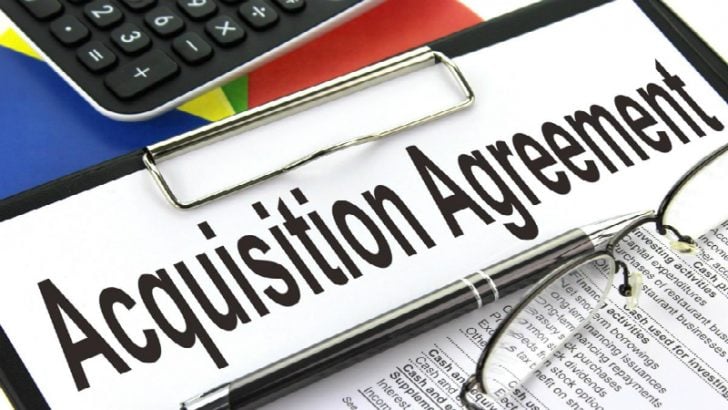
According to a report by BDO, M&A (Merger and Acquisition) deal activity showed a huge jump in Q4 2016 compared to Q3 2016. It was also a record for quarterly M&A activity since Q2 2008. In the final quarter of 2016, trade buyers completed 672 deals and showed no signs of reducing their appetite for M&A (Source: BDO PCPI Q4 2016).
We have seen the same trend with lots of overseas investors capitalising on the weak pound to get some good bargains in the UK. In the last six months, we have acted for more overseas investors buying in the UK than we have for UK investors.
There are key things every overseas investor looking to buy a business in the UK needs to consider:
- Get excellent UK business advisors and lawyers. This may sometimes seem an unnecessary cost but getting good advice on a transaction is worth it in the long term. It can save buyers from making costly mistakes and assist with the negotiation process.
- Employment regulations are different from that in other countries, for instance, in the USA. In the UK, the employees of the vendor business automatically move to the acquirer under a regulation known as Transfer of Undertakings (Protection of Employees) ‘TUPE’. Make sure you get advice on this before you make any decisions concerning redundancies etc. of employees.
- Understand what you are buying. Are you buying the trade and assets or the shares of a business? A trade and assets acquisition means you buy specific assets/ customer lists/ goodwill and the due diligence is limited to what you are buying. A share acquisition means you are buying everything in the company – warts and all. This means you inherit the VAT, bank account, PAYE, corporation tax and everything else related to the company including the credit history. Share transactions carry a higher risk and work should be tailored accordingly.
- Pensions – does the company operate a defined benefit scheme or a defined contribution scheme? If it is a defined benefit scheme, is there a deficit in the pension fund that will need to be funded? It is likely that most SMEs have defined contribution schemes and should therefore not have that issue but it is wise to check. The law on workplace pensions has also changed. Under the Pension Act 2008, every employer in the UK must put certain staff into a pension scheme and contribute towards it. This is called ‘automatic enrolment’. Ensure that the company you are buying is compliant.
- Due diligence – this will comprise financial, legal, HR and commercial due diligence. Key things to consider are:
- Understand the accounting policies of the business and any changes in these policies. A due diligence assignment I worked on recently highlighted that the company had changed their revenue recognition policy in the last year. A direct impact of that change meant that the profit of the business was inflated by £172k as a result of that change. Our buyers had based the transaction value on the EBITDA and were not best pleased when they realised that this number was inflated as a result of the change!
- Understand the accounting policies of the business and any changes in these policies. A due diligence assignment I worked on recently highlighted that the company had changed their revenue recognition policy in the last year. A direct impact of that change meant that the profit of the business was inflated by £172k as a result of that change. Our buyers had based the transaction value on the EBITDA and were not best pleased when they realised that this number was inflated as a result of the change!
- Look at the cash flow cycle of the business. Are you likely to have to inject some funds into the business in the short term?
- Review the employee contracts and benefits. If the aim is to merge an existing UK business with this one, what are the likely challenges going to be?
- Focus on the key management personnel – who do you want to keep in the business and how fundamental are they to the ongoing running of the business.
- How much working capital are you expecting the vendor to leave in the business? This should be agreed early on.
- Who are the key customers and suppliers? Are there any key customers/ suppliers the business depends on?
- Review the key contracts. Commercial customer contracts often have a change in control clause which means that the customer can cancel a long term contract if there is a change in control.
- Review the tax history. Have there been any investigations in the past and if so, what were the results of these. Are they up to date with filing/ settling all their tax liabilities?
- Are there any ongoing court cases/ contingent liabilities?
- Have the vendor shareholders given any personal guarantees? If so, these will need to be discharged and a new guarantee will possibly need to be given by the acquirer.
- What are the bank overdraft/ loan/ invoice discounting terms and conditions and how will the transaction affect these? What securities exist over the assets of the business?
- Are assets owned/ leased? We recently acted on a transaction where the seller signed up to an expensive 5 year photocopier lease on the morning the share purchase agreement was due to be signed. The buyer did not need the photocopier. Needless to say, the transaction aborted. Make sure you communicate what you want/ don’t want so there is no misunderstanding later on.
- Does the business operate from leased premises. If so, understand the terms especially if you are likely to exercise a break clause.
- How will the acquired business integrate with your existing business. How will it contribute to the overall strategy for your business.
Making a decision to buy a business in the UK is a great start. Most acquirers will only ever buy once, maybe twice in their lifetime and hence getting the decision right is very important. Whilst the above list is by no means exhaustive, it has hopefully given you an insight into the things that any acquirer wishing to purchase a business in the UK should consider.

Alliotts are experts in cloud accounting software and are Xero Platinum Partners. If you are concerned about making tax digital or would like to consider cloud accounting solutions please contact us.
























